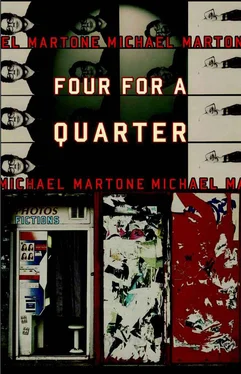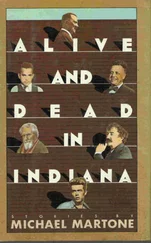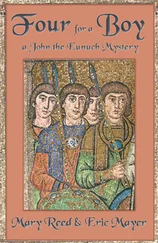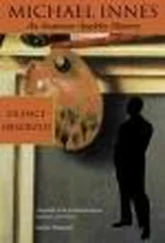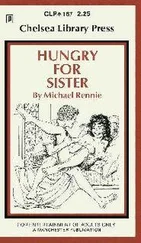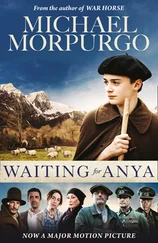“Will It Go Round in Circles“ and “Nothing from Nothing“ were his two hits. Billy composed Joe Cocker's “You Are So Beautiful.“ Turning breath into those Os. All those circles, breathing.

He was the fifth member of the Plastic Ono Band. He never put his hands in the wrong place, Klaus said. Or Ringo said it. Or George. Or John. Or I said it about his hands.

John said then, I was Wind. I was Wind. Billy, Breeze.

Touring, Billy, health failing, learned that George had died. He performed in the Concert for George in London, played a tribute song. Get back, he sang. Get back. Get back to where you once belonged.
copper coin heads up
the yellow flag iris bed
Japanese beetle
GEORGE MARTIN
sounds of a temple bell reverberate in a circle a long night
— Shiki
The Beatles auditioned for George in June at the Abbey Road studios. They recorded four songs. Martin wasn't there and only listened to the tape after the session ended. Their original songs were simply not good enough, George thought. And he asked each Beatle if there was anything they didn't like. George, The Beatle, said to George, “Well, there's your tie, for a start.“

In September, they recorded their first recording, “How Do You Do It.“ George thought it would be a hit. Everyone else hated it. It wasn't a hit. The next song was “Love Me Do.“ George asked Ringo to play tambourine and maracas, and he did though he was not happy about it. In November, John and McCartney begged George to record another of their original songs, “Please Please Me,“ and he did, but as an up-tempo song not as a slow ballad. George looked out over the mixing deck at the end of the session and said, “Gentlemen, you have just made your first number one record.“ He would be right that time.

Much later, after it was all over, George post-produced The Beatles Anthology that once was to be called The Long and Winding Road . George used an old four-track analog mixer to mix the songs instead of a digital deck. He found the machine somewhere at EMI. He explained this by saying that the old deck created a completely different sound, which a new deck could not recreate.

He also said the whole project seemed strange. He listened to himself chatting in the studio, thirty years before on the tape between the takes. His voice came back to him in this simple way.

George did not produce the two new singles overdubbing two of John's demos. George had lost his hearing. He left the work to others. He had listened for hours, just listening to John's voice with no desire to change or change it.

George said he scored “Eleanor Rigby“ after Bernard Herrmann's score for the Alfred Hitchcock thriller Psycho . He liked the way the bows cut through the strings.

With “Strawberry Fields Forever,“ George blended two very different takes into a single master through careful editing.

George is the not dead one of all the ones who are dead now. He played all the instruments, spliced the tape. He wrote the final notes, scored scores.

On “In My Life,“ he played a sped-up baroque piano solo. Nothing was ever fast enough, and then later, he thought, it had all been too fast.
windrows dry tinder
timothy exhales fireflies
the second cutting
HANDS
I heard a story once about a boy who, with his own hands, felt through the mass of steaming alfalfa in a windrow looking for his father's fingers cut clean off by the baler. His father had walked back to the yard to sit in the metal glider and wait for the helicopter but not until he had the presence of mind to tell the boy to find the fingers somewhere in the hay. “Put them in the cooler with the chemical ice.“ The boy dumped the lunch on the ground and got down on his hands and knees to sort through the grass at his feet.
I was all alone when my own hands in their gloves slid off like gloves as I monkeyed with the bean header on the gleaner. My father had gone to town. My mother was at church. My hands were gone somewhere in the idling red machine. My lunch was in the cab. The sky was blue. The machinery had crimped the flesh enough to staunch the heavy bleeding for now. I held my arms up away from my body like doctors do after they have washed up, and I turned and walked on up to the house.
At the county fair each year I showed an animal or two, currying the coat of the steer, ratting its tail into a cloud, raking back the white lick on the forehead 100 times. The judge slaps the rump of the winner and leaves his handprint in the smooth fur. The animals give a kick or two. And later, the auction is a field of waving hands. That night in the show ring us kids chased the pigs, tried to tackle them in the mud. We clawed at them as they ran between us and through our legs. I had one in my hands, all slime and scum, and then it tore away from me.
That boy found most of the fingers, placed them one by one in the palm of his hand, then plopped them, one by one, down on the bottom of the plastic cooler, on the frozen plastic packs of chemical ice. The fingers were like bait, or more like what you've caught for bait, fingerlings. He closed the cooler and turned and walked up to his house, hung on to the door handle and listened for whump whump whump of the chopper blades coming from the city.
HEAD
The screen door was open, and I backed into the kitchen, a bit light-headed now. It was dawning on me now — I no longer had my hands — and, now that I think of it, now that it is over, I paused to consider using words like grasp and handle to tell myself what had happened to myself and found it so funny that we think of thinking as something like a hand. Get a hold of yourself, I remember remembering.
We are still on a party line even now way out here in the middle of nowhere. Talking on the phone you can hear the voltage bleed out of the wire, draining as another phone is picked up along the line, and the person you are talking to retreats into all that distance, the voice getting smaller and smaller, the message reeling out into a whisper while you silently nod so as not to say what you are thinking and hope the shaking of your head or the lines on your face get picked up and transmitted on their own past the neighbors tapping in. I need to find a pen or pencil, something, I thought, to dial for help. And the phone in the kitchen must still be dialed dialed. It's not a touch-tone, the adding machine pad of numbers that people still say they dial.
I nosed the pencil across the tablet where my father had that morning played with some puts or calls, doodling the numbers on the blotter. We were getting deeper into futures, to hedge our risk, and placed orders over the phone in code to confuse whoever that moment was listening. We went to Chicago to meet our broker and watched the pits at work. It was all hands flocking above a pastel herd of men.
Читать дальше
